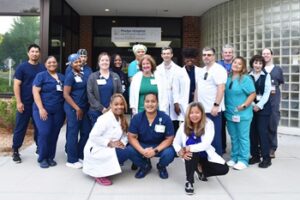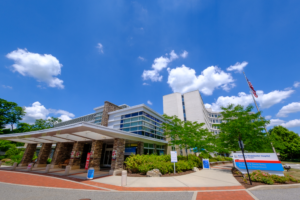
The flattening of the curve in New York State suggests that cancer patients should begin thinking about returning for treatment, but decisions about risk versus benefit must be made on an individual basis.
“New York State’s measures against coronavirus are paying off, making it possible for patients to resume treatment more akin to what we were doing prior to Covid,” says Dr. Lev Davidson, director of the Cancer Treatment and Wellness Center at Northern Westchester Hospital. “But, there is still no consensus about when patients should delay or proceed with treatment. In fact, there is no one right answer. Every patient must weigh the risks and benefits with their own physician.”
According to Dr. Davidson, the major health care organizations including the Center for Disease Control (CDC), the American Society of Clinical Oncology (ASCO) and the European Society of Medical Oncology have not reached full agreement or issued uniform guidelines for care.
Many experts suggest that people with active cancer who get Covid-19 are at far more risk for complications; people with lung cancer are especially vulnerable. Northwell is currently conducting studies on the effect of Covid on cancer care.
“There are many questions that must be addressed,” he says. “What is the disease? What stage is it? What is the status of remission? Does the patient require immunosuppressive therapy? Every situation must be considered individually.”
Dr. Davidson addresses some of the questions patients are asking:
Is it safe to go to a physician’s office or to the hospital?
“It is absolutely safe to go to the hospital or to a physician’s office. Because people being treated for cancer are so vulnerable, we are taking the most stringent precautions. Every patient and visitor to the Cancer Institute has their temperature taken with a thermal camera to make sure they are not sick. In addition, everyone wears masks, follows protocols for social distancing, and there is a limitation on the number of visitors.
“In addition, everyone on active chemo receives Covid testing 48 to 72 hours before chemotherapy. Since many chemotherapies are immunosuppressants, the risks must be weighed for people with Covid infections.”
Are there alternatives to an in-person visit?
“Telemedicine is an important tool that can be used to gauge the need for an in-person visit, and allow patients to speak about their own personal situation and resources that can supplement cancer care. Though telehealth has its limitations—you cannot take blood, perform a complete physical exam or obtain vital signs, which are used to calculate the dosage of many medications—a virtual assessment can be very useful for both physician and patient.”
What happens if I wait?
“With the resumption of delayed cancer surgery, oncologists are discussing a variety of scenarios with patients. In some cases, it makes sense to do surgery followed by therapy to prevent the progression of disease. In other cases, patients may undergo chemotherapy or hormone therapy while waiting for surgery.
“Treatments must be tailored to each individual. Patients should discuss the possible ramifications of delaying surgical procedures with their physician. For example, it is generally possible to safety delay treatment for non-melanoma skin cancers for three-to-six months, while delaying treatment for acute leukemia or advanced testicular cancer may affect the patient’s long-term outcome.”
What about screenings?
“Decisions about screenings may vary depending on symptoms and risk factors. Someone who had a polyp removed during a colon cancer screening three years ago, can probably delay an additional screening, but should consult their physician. In other cases, cancer poses a greater threat than Covid, so we recommend proceeding cautiously but safely.”
“The coronavirus pandemic has added to the anxiety already faced by people who receive a cancer diagnosis, and we’re concerned that cancer patients are delaying critical treatment,” says Dr. Davidson. “Having a conversation with your physician will help determine the best course of action.”
Photo courtesy of Northern Westchester Hospital







